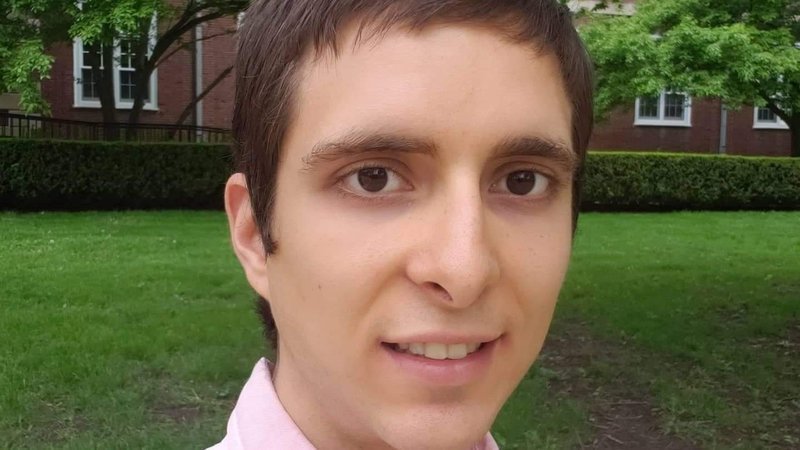University dismisses another graduate student for COVID-19 noncompliance
Photo Courtesy of Graduate Employees' Organization/Change.org
Graduate student Antonio Ruiz poses for a photo. Ruiz is the second student dismissed from the University this academic year because of Covid-19 noncompliance.
April 20, 2021
The University has dismissed Antonio Ruiz, a graduate student in LAS, for not complying with the COVID-19 testing policies this semester.
The dismissal of Ruiz has gained attention on social media as the petition advocating for his reinstatement has around 3,000 signatures as of Saturday, with the campus community rallying online in support of his case.
With Ivor Chen’s case occurring earlier this semester, many people have once again started to question the treatment of graduate students at the University.
Chen is a graduate student in Engineering who was initially dismissed earlier this semester for COVID-19 non-compliance, but was reinstated after his case was revised.
The Graduate Employees’ Organization has called out for support for this case because Ruiz has various health risks and physical disabilities that have prohibited him from taking the University’s saliva test.
Get The Daily Illini in your inbox!
Ruiz received his initial disciplinary notice for testing noncompliance on Oct. 20, 2020, and attempted to apply for test exemption and was denied since he resides in University Housing.
“He got several letters from documentation from physicians that he’s worked with as evidence during the hearing. Because he lived in University Housing, he couldn’t get an exemption and he didn’t know about the nasal swab test,” said Ellie Fujimoto, member of the GEO.
The University released a Massmail on Jan. 15 stating that only students living in non-University housing and who don’t come to campus are eligible for COVID-19 testing exemptions.
According to the GEO, Ruiz was not informed about the nasal swab alternative until March 25 during the hearing with the Office for Student Conflict Resolution, which he immediately applied for on March 26.
“Our experience has been that information presented outside of the formal disciplinary process about a disciplinary action often presents an incomplete portrayal of the facts. For example, for the entire academic year, we have offered an alternative testing option to any student who cannot use the saliva test,” said Robin Kaler, associate chancellor of public affairs.
During the hearing, Ruiz attempted to explain his medical conditions with various supporting documents from doctors and faculty as evidence but was dismissed.
Initially, the dismissal was effective immediately and Ruiz received a trespassing notification that prohibited him from entering any University property, even though his residence was in University Housing.
According to the new information the GEO received, this information has been clarified by the case coordinator to allow Ruiz to enter University prosperity for the purpose of testing, and he has until May 13 to vacate the residential building.
The GEO is continuing to push forward the reversal of this dismissal case and reinstate Ruiz.
“We’ve launched an email campaign to put some pressure to at least get the sanctions for Antonio reduced. We just don’t want him to have to move across the country, especially given that he’s vulnerable to complications resulting from COVID-19,” Fujimoto said.







